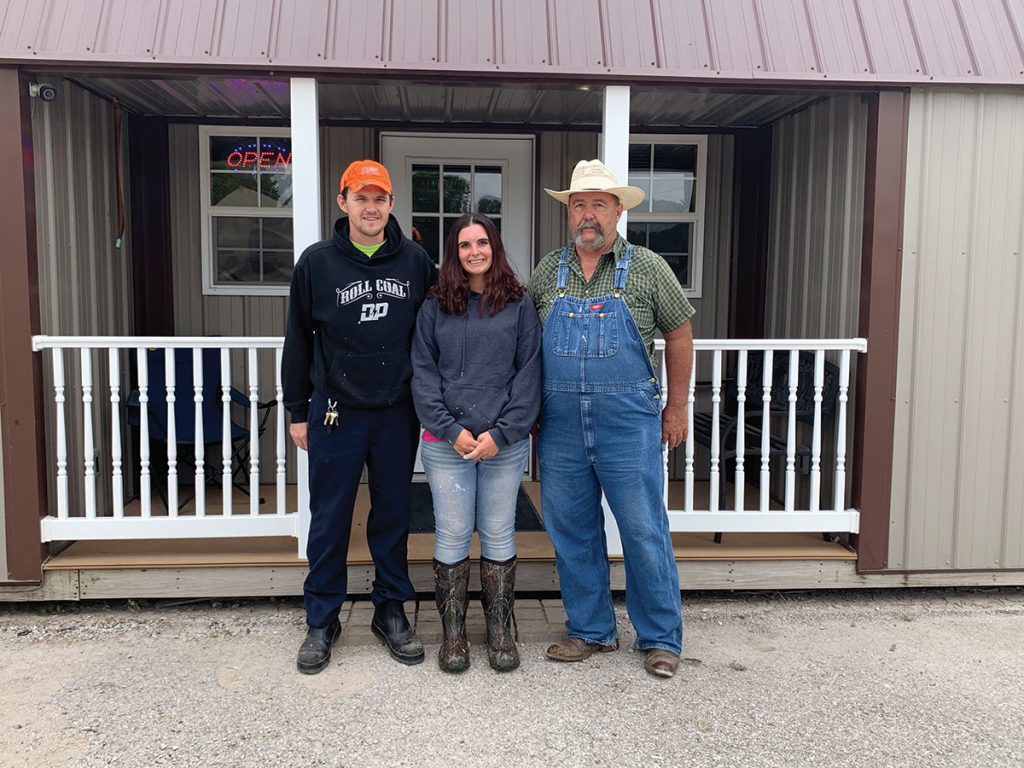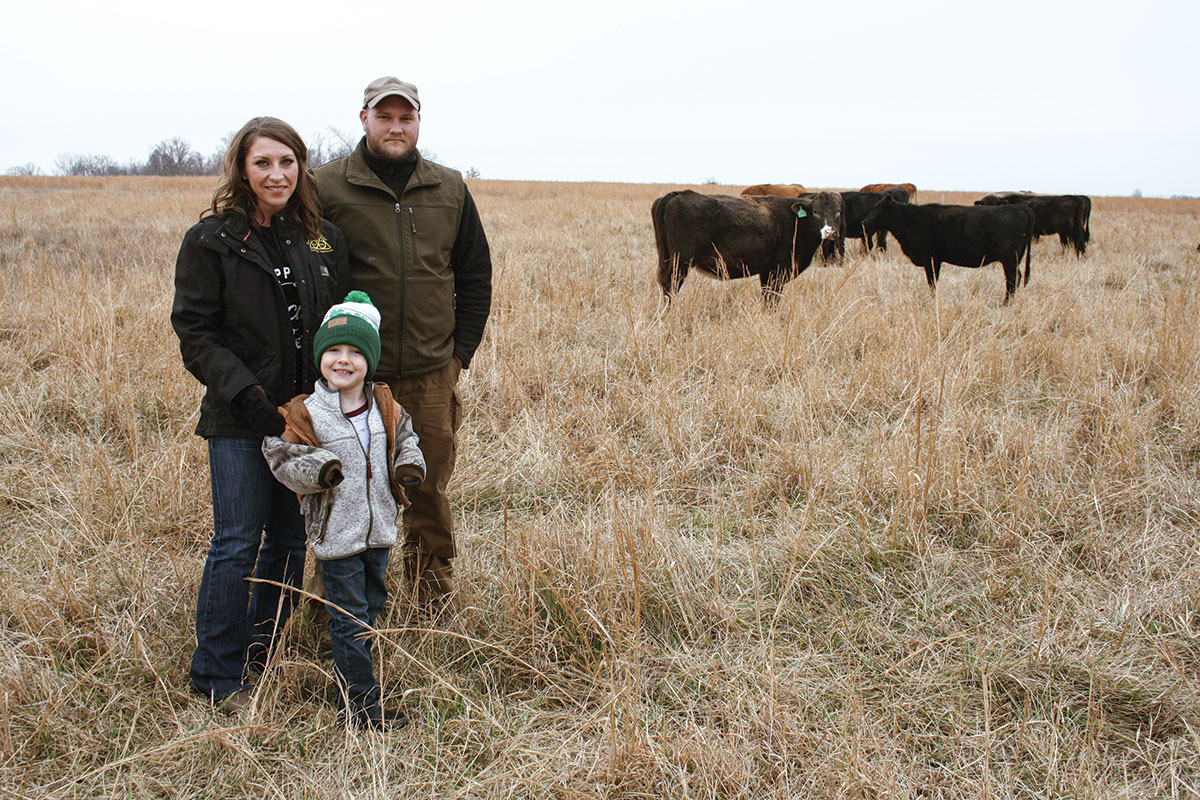
The Longs continue to experence growth at Golden City Meats
Robert Long and his wife Radella both grew up living on small farms. They purchased Golden City Meats in Golden City, Mo., in 2008.
The business, which originally opened in 1971, has served Southwest Missouri as a USDA – and state-inspected slaughter and meat processing facility that handles raw meat. Robert and Radella bought the business to ensure they had a place to process their animals the way they wanted and to continue to provide the same great service that has been around for nearly 49 years.
Golden City Meats mostly processes for producers for resale. Their customers bring product in year-round. They process beef, pork, lamb, goat, buffalo and elk. They also offer cured ham and bacon.
When the Long’s bought the plant in 2008 they started out with four to five employees and are now running up to 12 employees.
“We have become more efficient over the years,” Robert said. “I also have two girls working on the kill floor, which is not traditional, but they are both good employees.”
One limiting factor for the business has been space in the plant. Their current carcass cooler is one of the largest in the area at 600 square-feet, but it is now too small. They added a new retail area about two years ago and are currently in the process of building an additional 7,000 quare-feet to the facility. This will quadruple their cooler space and will allow them to quadruple production. They look for the addition to be complete sometime next year. They will open their new part in phases and are excited to announce they will have a drive thru drop off for animals, which Robert said will be a big improvement.
The processing industry keeps growing and changing to more automation and the Longs continue to make improvements. Recently, they installed a solar field to help offset electrical costs. Along with these other additions, they have upgraded to more automated equipment, which Robert says has definitely sped things up. They recently bought a new automated vacuum sealer, which keeps production at a steady pace and a new grinder/mixer that allows fat content to be evenly distributed in the sausage and hamburger. Their slicer cuts steaks to perfectly 1 inch, or whatever the customer specifies, along with cutting the bacon all a certain width.
“We hope to keep adding more automation as we go,” Robert said.
Their biggest hurdles have been keeping prices down for their customers. Recent price increases have been due to several changes in the industry. They now have to pay to have hides hauled off, unlike a couple years ago when they were able to sell them.
Their prices for the removal of animal offal has also raised nearly 1,000 percent this year due to only one company in the area picks up animal offal.
In January/February of this year, they doubled their number of employees due to the the less of a USDA inspected plant in October 2019. A lot of plants in the area are no longer USDA inspected and Robert said it has thrown a huge gap of no place to get inspected products. Golden City Meats are USDA-inspected slaughter, which is a federal inspection that allows the meat to be shipped and sold across state lines.
Some plants are only state-inspected slaughter, limiting the sale of the meat to within state lines only.
“That really hurts a place like Joplin that is so close to the state line,” he said.
Golden City Meats is a well-maintained facility and Robert is a huge supporter of inspected meats.
“Inspection plays a vital role and I really truly believe it should all be inspected,” he said. “You really want to do inspected. These guys are trained to catch stuff that is wrong with animals that most people won’t. They find cancer that is in there that you do not want to be eating and check for injection sites. Once a hide is taken off you can see where all injection sites are. The inspectors test for that because they have to meet all the withdrawal times for antibiotics.”
They currently provide services to their regular customers and are hoping to open up to new clientele once the new addition is finished sometime next year.
Robert stays true to his belief of “staying with those people that have taken care of you day in and day out.”
His philosophy is “Dance with the one that brought you.”
“It has been very hard to do during the COVID pandemic because we’ve tried to take care of the customers that have been coming all along and the ones that are truly making a living out of selling their meat,” Robert said.
Robert hopes to semi-retire in the near future and go back full-time to his Bison ranch in Halltown, Mo., that him and his wife purchased in 1995.
When that time comes, his son Cody Long and wife Amanda, who work at the plant full-time, will continue to run and grow the business.







